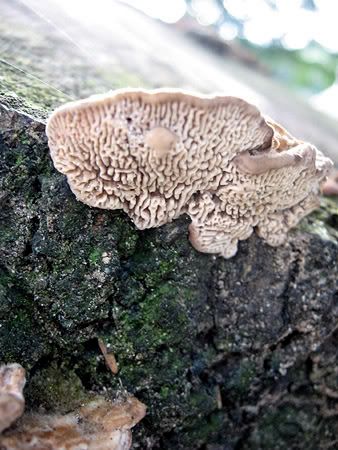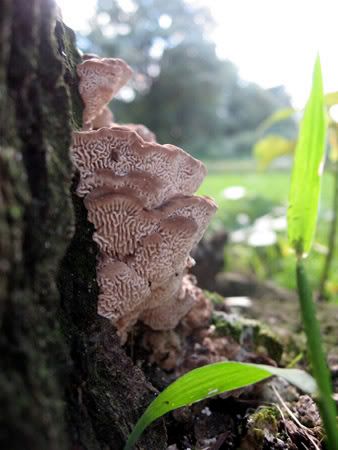365 Urban Species. #251: Oak Maze-gill

Urban species #251: Oak maze-gill Daedalea quercina
In temperate places where oak trees grow, they die and their wood is decayed by the oak maze-gill. Other fungi may do it, too, but it's the only thing that Daedalea quercina does. This mushroom will not appear on other dead trees, though a thin-fleshed look alike, Daedaleopsis confragosa, will grow on dead birches and willows. Though called a maze-gill, the spore-bearing surface technically consists of pores, and this fungus is in the same family as the "polypore" mushrooms, such as Polyporus squamosus ( dryad's saddle). The pores are elongated into a distinctive maze-like pattern. Its scientific name alludes to Daedalus, the designer of the labyrinth, and the "quercina" part refers to oak itself (Quercus is the Genus name for oak trees). Oak maze-gill is leathery and perennial, and can be found year-round for many seasons, until it finally turns black and rots away itself.
